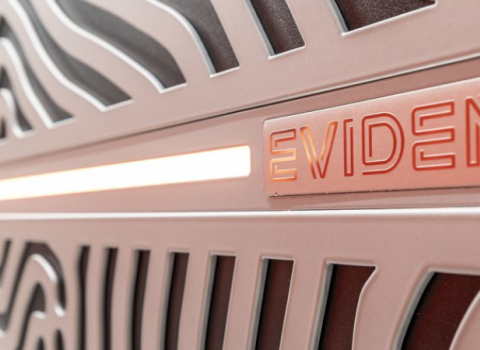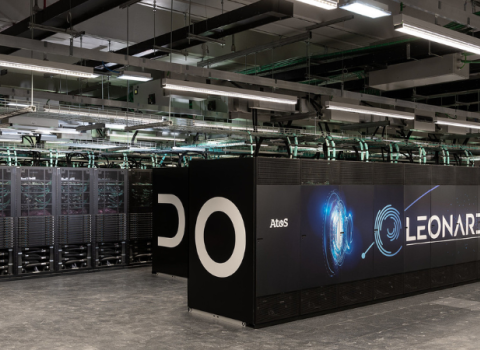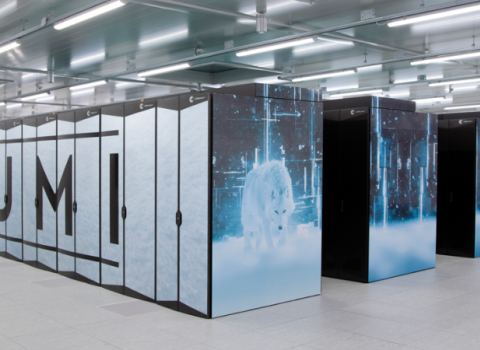The Center shows its commitment with research so that future supercomputer generations will be able to incorporate technologies fully developed in Europe.
The European Supercomputer MareNostrum 5, from the Barcelona Supercomputing Center – Centro Nacional de Supercomputación(BSC) will incorporate an experimental platform aimed at developing new technologies for the future generation of supercomputers. Hence, the BSC, apart from offering first-rate supercomputing services for European researchers, shows its commitment contributing with its research so that future generations of supercomputers will be able to incorporate technologies fully developed in Europe.
The implementation of this experimental platform, the only one that the EuroHPC – Joint Undertaking (EUROHPC-JU) has chosen to fund, has been the main news this morning, during the official visit of the Director General of Communication, Networks, Content and Technology (DG Connect), Roberto Viola. Viola explained the European HPC roadmap towards exascale. This is the framework for the EuroHPC-Ju’s decision to choose BSC as one of the three centres that will host pre-exascale computers co-funded by the European Union (EU).
“I am very proud to announce that today we have delivered on our promise to work together with the countries which are part of the EuroHPC Joint Undertaking and jointly deploy in the EU an integrated world-class supercomputing and data infrastructure”, said Roberto Viola. “These top performing systems that we will be deploying will provide Europe with the high-quality capacities it needs to keep pace with its global competitors. They will help our scientists to tackle research questions highly relevant for our society in fields as diverse as climate change, personalised medicine, brain functioning, cosmology and many more, and accelerate innovation in areas vital for the competitiveness of our economy such as manufacturing, engineering or designing new materials and new drugs”, states the Director General of DG CONNECT”
BSC’s director, Mateo Valero, who is the scientific coordinator for the development of the first accelerator (GPU), explains the initiative to incorporate an experimental platform in the MareNostrum 5 assuring that “Europe, because of security and sovereignty reasons, can not proceed with the high level of dependence that it shows regarding computing technologies made in other continents”.
“At the BSC – continues Valero – we are firmly persuaded that the development of our own technology must be a priority for the European researchers in computational sciences, and we congratulate ourselves for the fact that the EC has committed itself regarding this issue as well for the last years”, in reference to the EC initiative to include the development of new technologies in the European supercomputing roadmap, which is being carried out through the EuroHPC-JU initiative.
Valero reminds us that “the great challenges of society, such as the study of climate change and the development of new energies (such as fusion), will need exascale computers, which are much more powerful than the ones we have today, with characteristics following today’s needs of researchers and with proportionally less energy use than the current one, which will require further research”.
An heterogeneous supercomputer to meet today’s needs
Another of the remarkable aspects of the future MareNostrum 5, which will have a peak performance of 200 Petaflops (200 x 1015 of operations per second), is that it will be an heterogenous supercomputer.
The use of supercomputing for more diverse disciplines and activities results in the fact that current supercomputers have to meet different computational needs. Some works, for instance, mainly require a high computing capacity, whereas others need more capacity of analysis in real time, and others need both types of capacities, such as the ones regarding personalized medicine or the simulation of power generation processes.
Offering an heterogenous architecture, probably based on two big clusters with different characteristics, is BSC’s proposal to optimize both response times and energy use of the different works that the future supercomputer will have to compute. The details of this heterogenous architecture will be defined as the works of definition and the infrastructure tender progress.
Coming constitution of the consortium that will fund the MareNostrum 5
MareNostrum 5 will have a cost of 223 millions of Euros, which is the expected budget for the purchase, installation and its functioning for 5 years. The 50% of this budget will be funded by the EU, and the other 50% by the states that will be a part of the consortium that support the proposal.
The BSC had, since the first moment, the political and economic support of the governments of Spain and Portugal, which were soon followed by the governments of Turkey and Croatia, for its candidacy to host one of the pre-exascale supercomputers of the EU.
Ireland, which offered its political support to the proposal, is evaluating its incorporation to the consortium, led by the BSC; some other states could also be incorporated until its constitution date, expected for the end of July. BSC’s Board of Trustees – the Ministry of Science, Innovation and Universities of Spain, the Department of Business and Knowledge of the government of Catalonia and the Polytechnic University of Catalonia - have also supported the proposal from the very beginning.
Further information here.
This communication was first published 10 June 2019 by the Barcelona Supercomputing Center.





 A unique international forum for public research organisations and companies to connect their external engagement with strategic interests around their R&D system.
A unique international forum for public research organisations and companies to connect their external engagement with strategic interests around their R&D system.